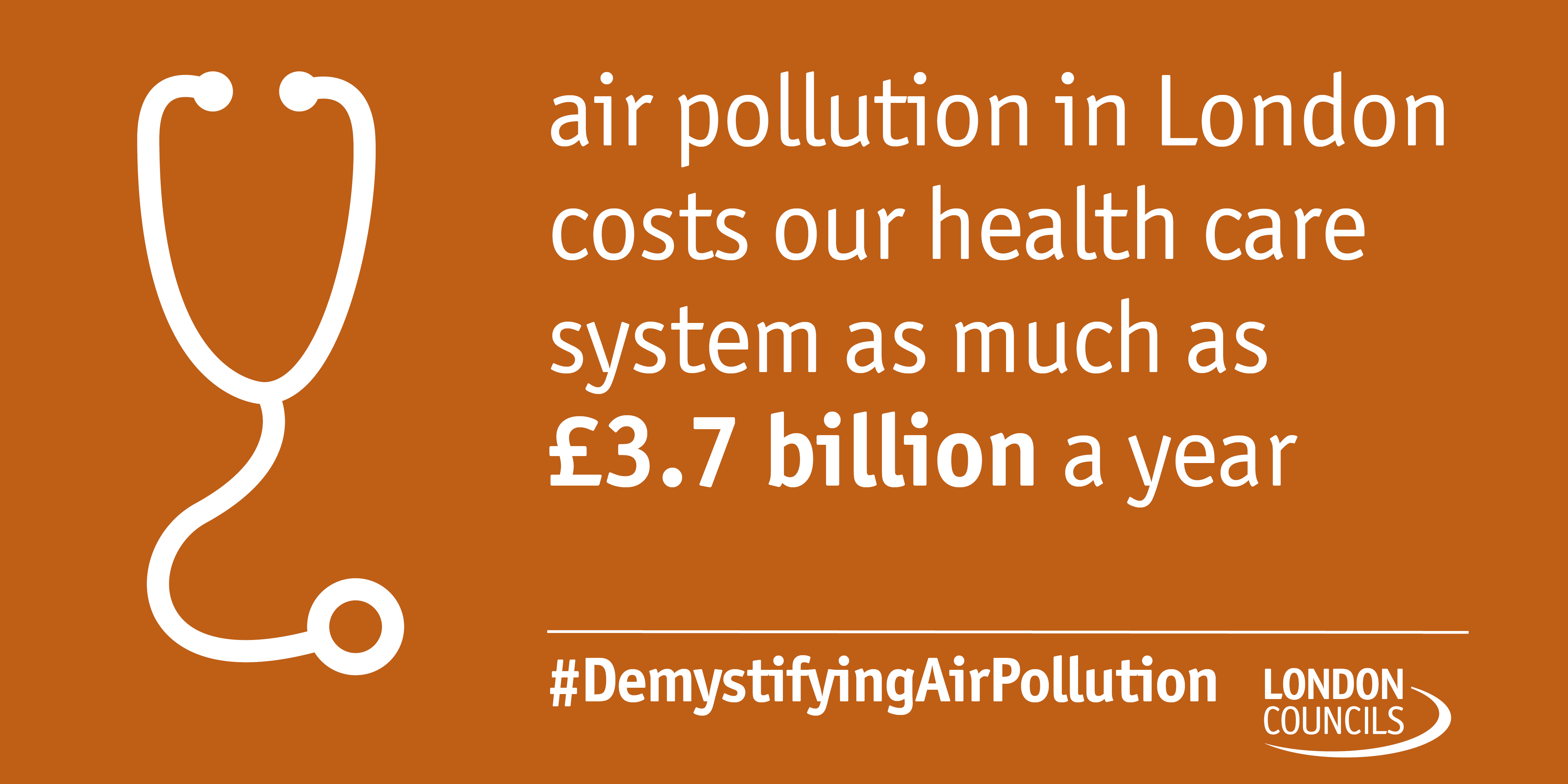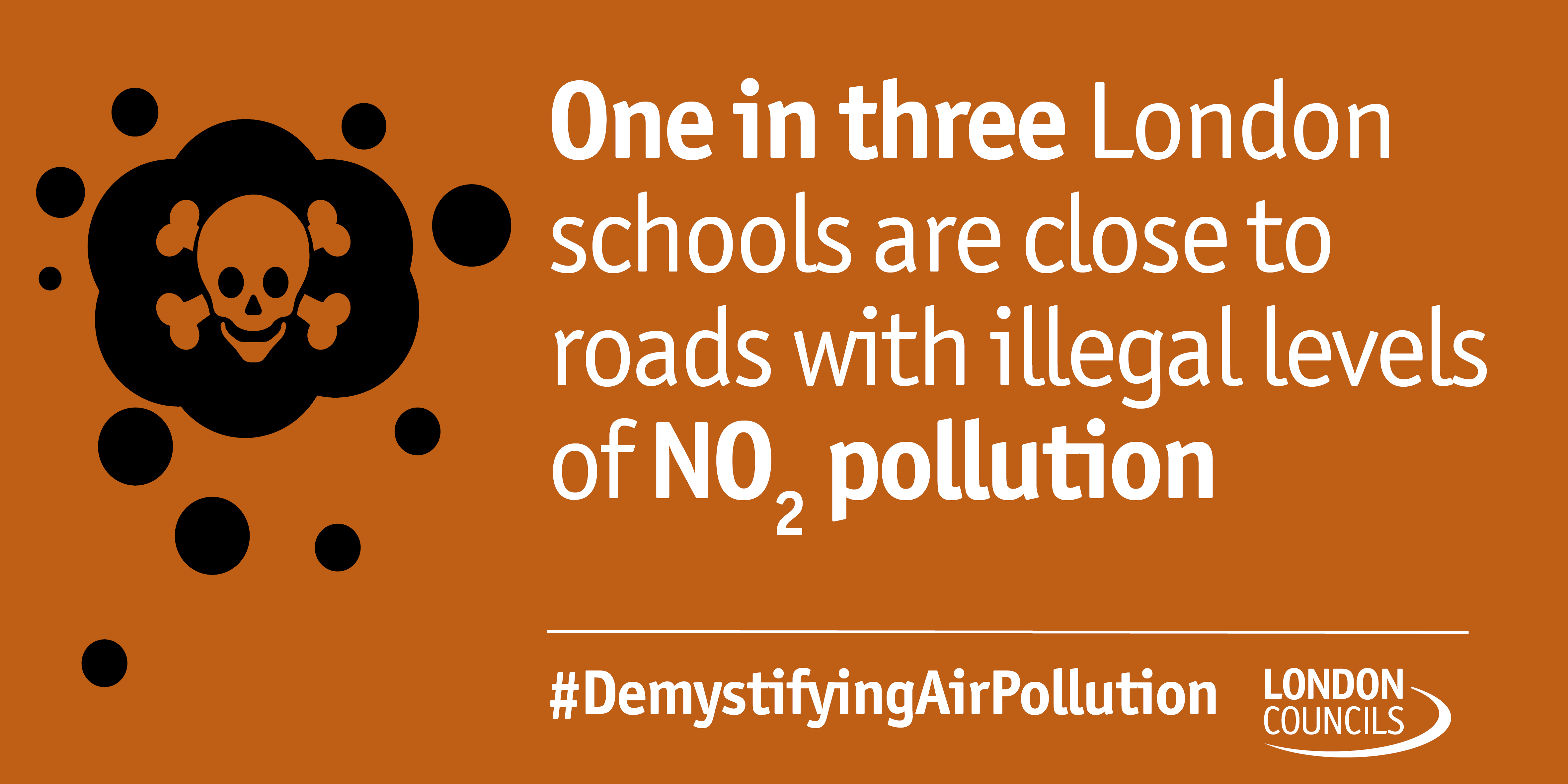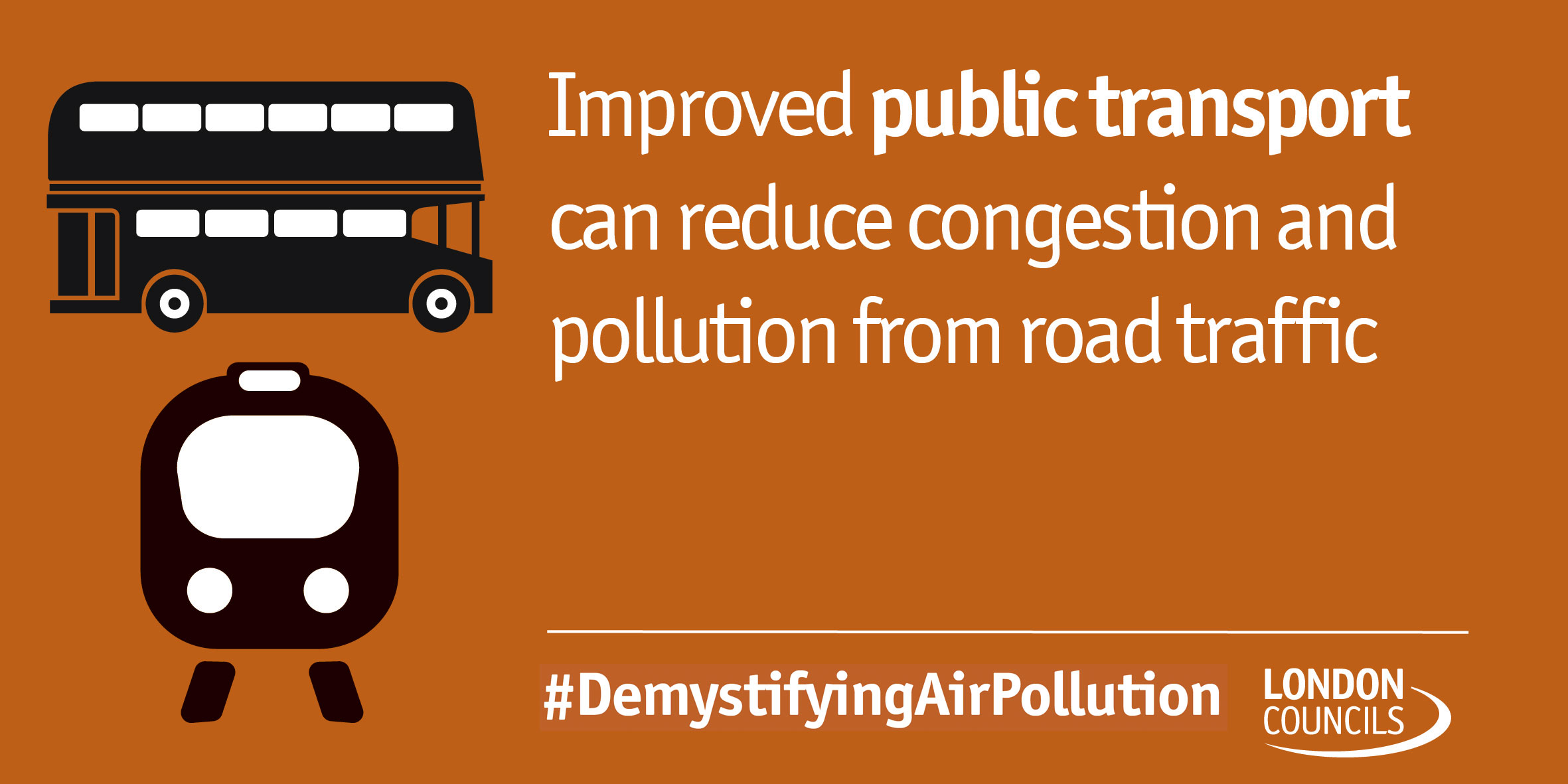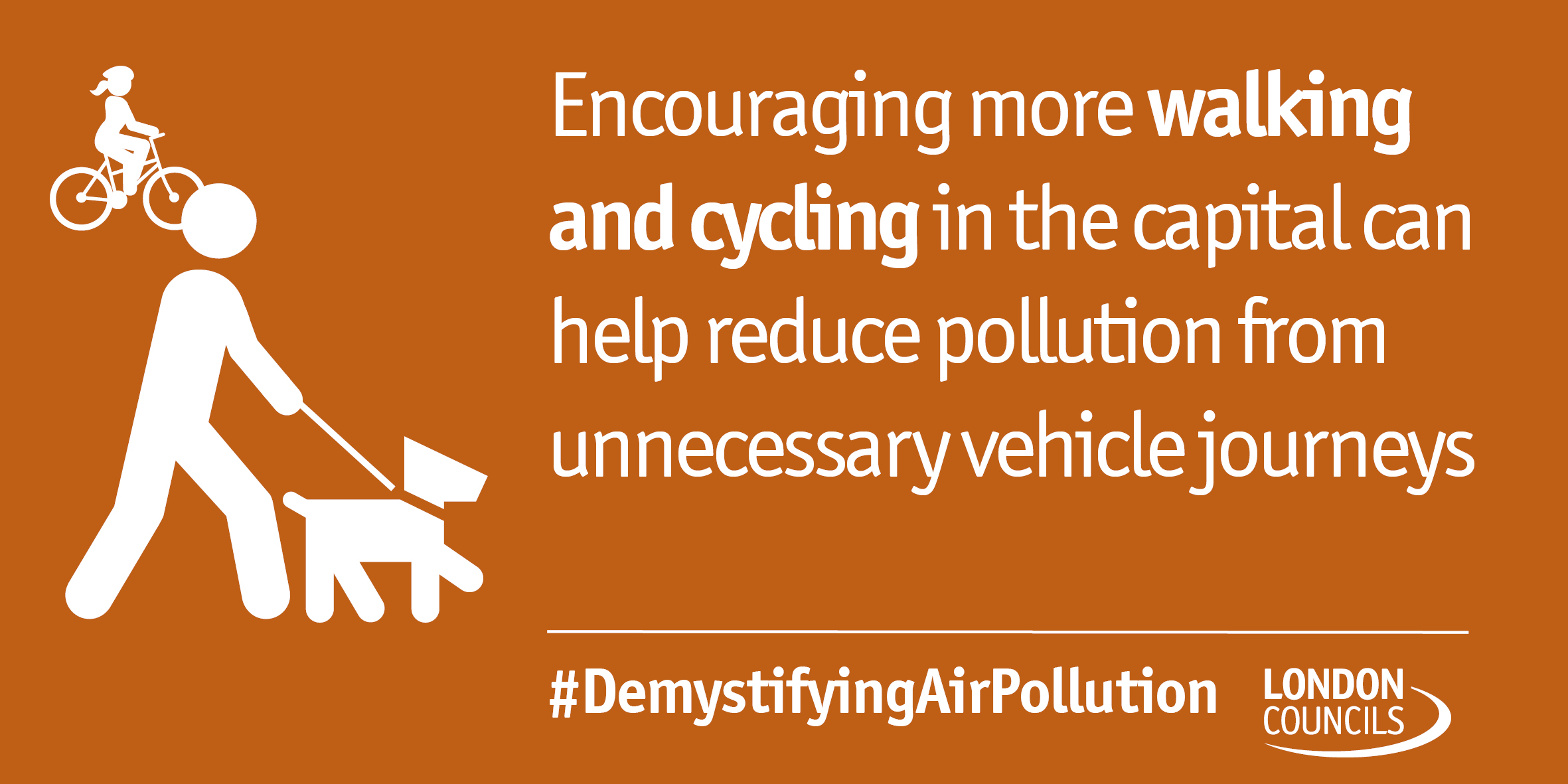 The Mayor of London's consultation about measures to reduce levels of toxic air pollution originating from petrol and diesel vehicles ends on 28th February. If you, like me, think that the proposals won't provide adequate protection for people living outside the North and South Circular Roads - and will be even more injurious to the health of people living along those roads - you need to respond to the online consultation before that date.
The Mayor of London's consultation about measures to reduce levels of toxic air pollution originating from petrol and diesel vehicles ends on 28th February. If you, like me, think that the proposals won't provide adequate protection for people living outside the North and South Circular Roads - and will be even more injurious to the health of people living along those roads - you need to respond to the online consultation before that date.
The proposals are explained on the following page of the Transport for London website:
consultations.tfl.gov.uk/environment/air-quality-consultation-phase-3b
The web page summarises the proposals and the reasons behind them, but also provides links to more detailed information. The main thrust of the arguments is the need to reduce exposure to two pollutants produced by road transport:
- Nitrogen dioxide (NO2): At high concentrations, NO2 causes inflammation of the airways. Breathing in high levels of NO2 over a long period of time is associated with an increase in symptoms of bronchitis in asthmatic children and reduced lung development and function
- Particulate matter (PM): Breathing in high levels of PM over a long period of time contributes to the risk of developing cardiovascular and respiratory diseases, including lung cancer. Research shows that small particles (those with a diameter of 10 microns and smaller) – PM10 – are likely to be inhaled deep into the respiratory tract. The health impacts of the smallest particles (those with a diameter of 2.5 microns or smaller) – PM2.5 – are especially significant, as smaller particles can penetrate even deeper.
The proposals are for a staged tightening of the emissions standards for cars, lorries and buses and a gradual extension of the scheme outwards from the current central London Congestion Zone, as summarised in this infographic (LEZ = Low Emissions Zone, ULEZ = Ultra-Low Emissions Zone, T-Charge = Toxicity Charge):

As can be seen from the infographic, even in 2021 there would be no charges designed to discourage drivers of highly polluting cars, whether diesel or petrol, using roads outside the area bounded by the North and South Circs. And crucially, this also goes for the North Circular itself, meaning that residents in the new housing along Bowes Road, and children at Bowes and Broomfield schools, will continue to be exposed to particularly high concentrations of the toxic gases and particulates.
Clearly, the proposals would reduce pollution from lorries, buses and light commercial vehicles throughout Greater London. However, in outer London cars, not lorries or buses, predominate. Furthermore, emissions from modern buses and lorries are actually lower than from modern cars, despite the fact that they have more powerful engines. This is because standards are based on testing in real conditions, which is not the case for cars - even if we discount the trickery practised by VW and other car manufacturers, and the many cars on the road which have had particulate filters illegally removed.
To ease the impact on car owners, the Mayor of London is campaigning for a government-funded diesel car scrappage scheme.
Where do the local parties and groups stand on these issues?
Without going into great detail, the position of local parties can be summarised as follows:
Labour group on Enfield Council: Their position (and that of the Council) is that the ULEZ should be extended to cover the whole of Enfield.
Conservative group on Enfield Council: The Conservative group opposes the extension of the ULEZ even as far as the North Circular Road, arguing that doing so would penalise Enfield motorists paying visits to the North Middlesex Hospital.
Enfield Liberal Democrats: I've been unable to ascertain their view from their website (apologies if it is on the website and I just failed to find it).
Enfield Green Party: Enfield Green Party's view is that the Mayor's proposals are not tough enough. They would like the ULEZ to cover the whole of Greater London out as far as the M25. They fully support the detailed responses developed by Green Assembly Member Caroline Russell (see below).
Better Streets for Enfield: BSfE agree that the ULEZ should be London-wide and cover all vehicles - see the BSfE website.
How to respond
I'm personally in favour of a London-wide ULEZ, a faster introduction of the zones and fewer exemptions or reduced charges for particular categories of driver or vehicle. Although this would be problematical for many drivers, I think that the ever increasing evidence of the serious harm caused by diesel and petrol emissions means that we would be doing a grave disservice to the capital's people - especially children - if we did not act quickly.
The proposals are quite complex and some thought needs to be given to how to respond. My recommendation would be a submission along the same lines as that written by Caroline Russell of the Green Party, who is a member of the Greater London Authority's Transport Committee. Her draft submission is on the GLA website. One of the points she makes is that rather than a fixed daily charge for driving in the ULEZ, it would be preferable to implement a smarter road pricing scheme, with charges based on the time of day, distance travelled and level of vehicle emissions.
Links
Have your say on changes to the Ultra Low Emission Zone and Low Emission Zone (TfL website)
We need clean air in Enfield too (Better Streets for Enfield)
Left Out Londoners: Why we need a fairer ULEZ (Caroline Russell AM)
Draft response to the Mayor’s air quality consultation phase 3b (Caroline Russell AM)









